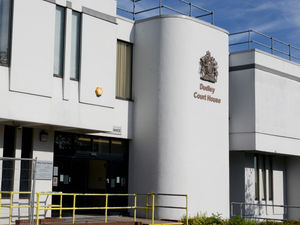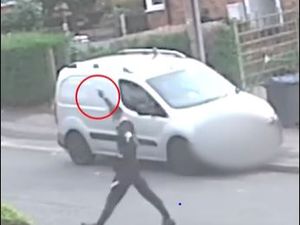Hoax caller conned charity out of £83k in bank scam
A hoax caller conned a charity out of £83,000 – but detectives have dropped the case over a lack of evidence, it has been revealed.

Friar Park Millennium Centre in Wednesbury was scammed by an alleged representative from Lloyds Bank in December 2016.
The caller claimed the charity’s bank account was infected by a virus – and the money inside would be lost unless it was transferred to a new account.
An investigation was launched by Sandwell Council, London’s Metropolitan Police and Lloyds Bank, with the transferred money allegedly tracked to Scotland and India.
Around £19,000 was eventually recovered but the financial impact lead to seven paid jobs being lost.
George Reeves, the vice-chairman of the charity’s board of trustees, said: “This centre is an essential part of the community so when the scam happened it left us completely devastated.
"The caller was supposedly from Lloyds Bank. They were on the phone for about an hour. Apparently there was a virus on the account and if we didn’t move the money it would be lost.”
“The bank managed to recover £19,000. They did track someone to Scotland and some money to India.”
The hoax call was taken by a member of staff who no longer works for the centre.
The Met led the investigation as it was believed there were also scammed victims in London.
But after three years of investigating, Met detectives shut down the case in March 2019, citing a “failure to meet the evidential test” for prosecution.
A Met Police spokesman said: “The complainant in this case reported being defrauded after being called in December 2016 by someone purporting to be from their bank, saying that their account had been hacked and funds needed to be moved.
“A large sum of money was subsequently transferred out from the organisation’s accounts in a series of transactions, before it was discovered that a fraud had taken place.
“Officers from the Met’s Economic Crime Command led a complex investigation into the fraud.
"The primary beneficiary of the fraud was identified and stated that he had been a victim of an account takeover.
"Officers established that this was consistent with activity on the account; all the money had been dissipated out of the beneficiary account.
“In March 2019, detectives concluded that the case was not suitable for further investigation or for a referral to the Crown Prosecution Service (CPS) as it failed to meet the evidential test. The victim has been informed.”
A document on the charity’s statement of accounts published in 2017 shows that £83,132 was lost through fraud.
The Charity Commission, which is the government’s charity regulator, probed Millennium Centre in the wake of the scam.
The watchdog said it was “satisfied” that the charity had responded appropriately to the cyber crime by tightening its financial security.
The charity now has an independent finance officer who manages its transactions.
A Charity Commission spokesman said: “When a charity falls victim to fraud, more is lost than money. Fraud can have a hugely detrimental impact on morale in a charity, and on public trust, so it is vital that trustees take steps to protect their charity against fraud.
“We engaged with Friar Park Millennium Centre after the trustees reported a serious incident to us, in line with our guidance, regarding a significant loss to the charity as a result of a cybercrime.
"We provided the trustees with advice and guidance around financial controls, and assessed the charity’s response. We were satisfied that the trustees acted appropriately, including by strengthening the charity’s financial controls.”
Despite the huge loss of income, the charity has made a financial recovery.
Five paid staff have been given their jobs back, while a number of volunteers continue to work there.
Sandwell Council has also helped the charity to tighten its financial security in the wake of the scam.
A Sandwell Council spokesman said: “The council helped staff at the centre to implement safeguards to help prevent them from becoming victims of fraud in the future.”
“Immediately after the incident the council gave short-term support and one of our staff members worked around four or five hours a week for a month.”





